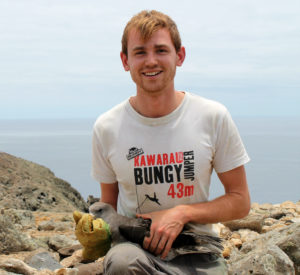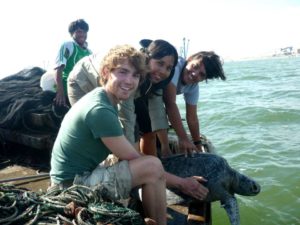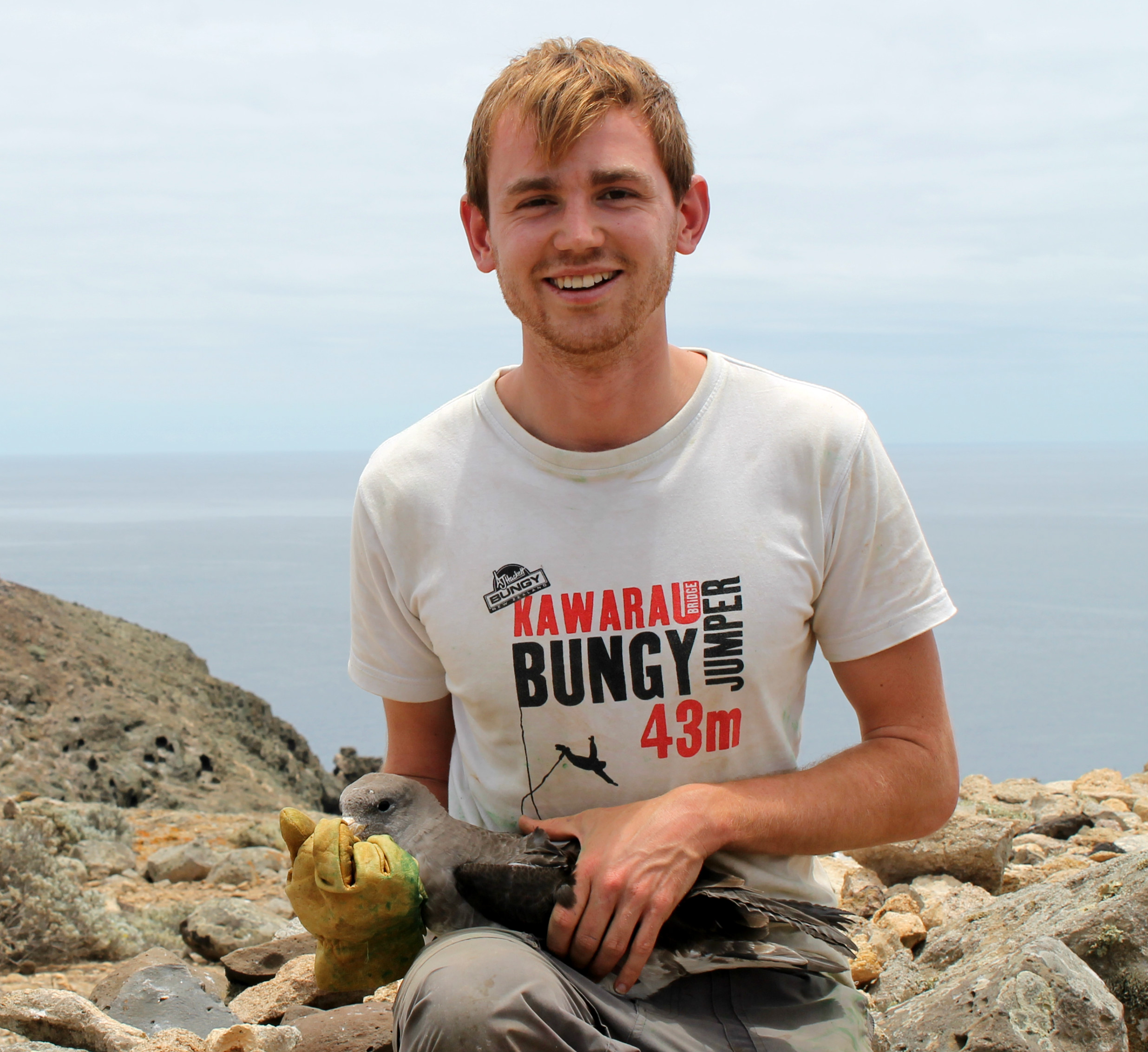Our world-leading marine research underpins a wide range of undergraduate and postgraduate programmes: Research-led teaching | Exeter Marine | University of Exeter. In this #MScGraduateInFocus series we are looking back on some of our MSc graduates who have excelled in marine conservation around the world since studying with us.
Today we meet Tommy Clay, MSc Conservation and Biodiversity graduate (2012) and now working as a post doc investigating the environmental drivers of sea bird movements at the University of Liverpool!

Hi Tommy! First off, why don’t you tell us what attracted you to study your MSc at the University of Exeter, Penryn Campus?
I was attracted specifically to the course and the location, but the University has really risen up the league tables in the last decade, in part due to the recognition that high student satisfaction is important for a University to flourish. The CEC has really become an international hub for behavior, ecology and conservation science, and has attracted a dynamic group of staff and students. The courses are lively and varied with a mixture of lectures, practicals, field courses, presentations and group discussions, which facilitates learning.
The dynamic interactions between staff and students at the University, local industry and NGOs make it a global center for marine research. This is demonstrated by the fact that ExeterMarine has been a great success.
Penryn is well set-up to host students and has great facilities and decent transport links. Falmouth, where most of the students live, is a pretty fishing town turned student village, so has a good array of bars and pubs (and when I was there, one club!).
So, what did you enjoy most about studying your MSc?
I have many fond memories from my year at the University of Exeter Penryn Campus. Cornwall is one of my favorite places and a fantastic place to live, especially if you enjoy being near the sea and surrounded by nature. Plus, I was lucky to have a fun cohort of course mates.
For me, there were two standout highlights. The field course to Kenya was great fun – to be able to learn about conservation issues while going on safari every day was really special. For my research project, I spent three months in Peru as a research assistant for the marine conservation NGO ProDelphinus, who work with local communities to promote sustainability of Peruvian small-scale fisheries. The hosts were extremely hospitable and I got to see how a conservation NGO is run, both from the office and in the field. It was an invaluable experience, and one which cemented my passion for marine ecology and conservation.

How did the MSc help prepare you for your career in research?
The course gave me a good overview of topics in conservation, potential career paths, and skills for a career in research or management of wildlife. In particular, skills in programming and statistics are increasingly important for ecological research and the course provides a great opportunity for students to develop these skills.
Carrying out literature reviews and presentations helped develop skills in processing large amounts of information and presenting it to audiences in a clear manner, something which is useful for a wide range of jobs. More specifically, developing proficiencies both in GIS and statistics in R (a programming software) are incredibly useful for a career in environmental management, whether directly involved in research or not.
To pursue a career in research or academia, I think the most important thing is to have an inquisitive nature. A PhD is hard work and requires a lot of perseverance, so it’s important to choose a topic you’re really passionate about and can get regular enjoyment out of.
Don’t be afraid of rejection and try and put yourself out there. If you want to work with someone, send them an email detailing your skills and interests, as they may have opportunities going that are not advertised. It’s a competitive field and a lot of success is based on luck. However, if you can create opportunities for yourself you’re more likely to get that lucky break.
Finally, Do you have any advice for anyone thinking of applying to any of our programmes at the University of Exeter?
Go for it!
Thanks Tommy!
If you want to find out more about any of our suite of #ExeterMarine Masters and Undergraduate courses use the links below!
- MSc in Conservation Science and Policy
- MSc in Evolutionary and Behavioural Ecology
- MSc in Sustainable Development
- MSc in Environment and Human Health
- MSc in Renewable Energy Engineering

